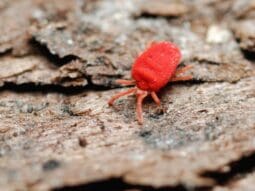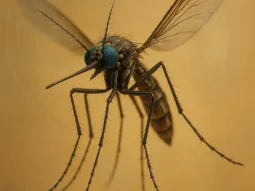
Louisiana’s Top 5 Pests
Do you find that staying on top of pests in Louisiana is like a never-ending game of whack-a-mole? From the stealthy spider to the elusive rodent, these pests aren't just a nuisance—they can be downright dangerous. You're not alone in feeling unsettled by these unwelcome guests; they're a common headache for many homeowners in the Pelican State.
Knowing which pests top the list is your first step in reclaiming your peace of mind. Cockroaches, rodents, ants, spiders, and termites are the usual suspects causing havoc. But don't worry, you're about to get the upper hand. You can protect your home from these persistent invaders with the right knowledge and strategies.
Overview of Pest Problems in Louisiana
Importance of Dealing with Pests
Confronting pest issues head-on is crucial not only for the comfort of your home but also for the health and safety of your family. Unwanted invaders like rodents and insects can bring about more than just mere annoyance; they present several risks such as spreading diseases, causing allergic reactions, and resulting in costly property damage. Ensuring that you tackle these problems promptly can avoid the escalation of these risks, preserving the structural integrity of your home and the well-being of its occupants. Taking action against pests is also vital for maintaining the sanitary condition of your living space, which further helps in preventing the attraction of more unwanted critters.
Common Pest Issues in Louisiana
Louisiana’s humid climate sets the perfect stage for a broad array of pests, with several being the usual suspects in home infestations. The top five pests in Louisiana that residents frequently encounter include:
- Cockroaches: These persistent insects are not only disturbing to come across but can also carry pathogens that may lead to diseases.
- Rodents: Known for their destructive nature, rodents can chew through wires, contaminate food supplies, and spread disease.
- Ants: While typically less destructive, their sheer numbers can quickly turn a small problem into an infestation.
- Spiders: Although many are harmless, certain spider species can deliver painful bites with serious health implications.
- Termites: Silent destroyers, they’re notorious for causing significant structural damage if left unchecked.
Identifying signs of infestation early, such as live or dead pests in the home, damage to plants or property, pest droppings, and unusual noises can be key in preventing these common issues from becoming severe problems. Regular inspections and preventive measures are essential strategies to protect your home effectively against the stubborn onslaught of Louisiana pests.
Identifying and Preventing Termite Infestations
As the Louisiana climate becomes increasingly warm and moist, it's imperative you're vigilant about termites, which thrive in such conditions. Knowing how to identify signs of infestation and employing effective prevention measures can save you considerable distress and expense.
Signs of a Termite Infestation
Termites often leave subtle signs of their presence. One classic indicator is the presence of swarmers, winged termites, around your property. Particularly after rain, swarmers emerge to start new colonies, and often shed their wings near illuminated areas like porches. Look out for these signs:
- Straight antennae and the same size wings are hallmarks of the termite swarmer.
- Mud tubes running along foundations signify termites traveling between their nest and food source.
- Damaged or hollowed-out wood indicates termites may have already begun feasting.
In Louisiana, the Reticulitermes and the Formosan termite are particularly notorious for property damage, swarming predominantly between February and March or just before the summer, respectively.
| Termite Type | Description | Swarming Time |
|---|---|---|
| Reticulitermes | Black, ~1/3 inch long | February to March |
| Formosan | Caramel-colored, ~1/2 inch | Night time before summer |
Being aware of these visual cues can lead to earlier detection and quicker resolution of any termite issues.
Effective Termite Prevention Measures
The key to preventing termites begins with creating an unfavorable environment for their survival and removing potential entry points. Here are essential strategies to safeguard your home:
- Repair any leaking outdoor water fixtures and prevent water pooling around foundations.
- Store firewood and any cellulose materials well away from your residence.
- Use dehumidifiers and maintain proper ventilation to reduce indoor humidity.
Moreover, to fortify your property against termites:
- Conduct routine self-inspections and employ a professional at least annually.
- Utilize pressure-treated wood for any structure near the ground.
- Turn off or replace outdoor lights with bulbs that don't attract insects to mitigate swarmer attraction.
Remember, while these tips are effective, the support of licensed pest control professionals is invaluable. They offer expertise in applying the most current methods to termite-proof your property, ensuring a robust defense against these silent destroyers. Always be proactive rather than reactive when it comes to termite infestations—an approach that will save both your home and your wallet in the long run.
Controlling Mosquito Populations
Understanding the Impact of Mosquitoes in Louisiana
In Louisiana, the buzz of mosquitoes is more than just a mere nuisance. 60 different species of mosquitoes thrive in the state, finding Baton Rouge an ideal breeding ground due to its warm climate and abundant water sources. These pests are responsible for spreading a myriad of serious diseases, including West Nile Virus, Malaria, and Yellow Fever, mainly during the lively summer and spring when outdoor activities are at their peak.
When a mosquito bites, it's not just taking your blood; it leaves behind saliva, causing an immune response that results in itching and discomfort. What's more, standing water from pools, ponds, and even small accumulations in your backyard serve as prime breeding grounds for these insects. Therefore, understanding their significant impact is pivotal for anyone living in or visiting the state.
Mosquito Control Methods
Controlling the mosquito population around your home is crucial for your health and comfort. Start by eliminating standing water where mosquitoes lay eggs. This could be in flowerpots, bird baths, or clogged gutters. Essential oils and citronella candles serve as gentle repellents, offering a natural alternative to chemical sprays. When you're outdoors, applying repellents containing DEET or Picaridin can provide personal protection.
For larger scale control, you might consider installing a mosquito misting system, which dispenses a regulated amount of insecticide at specific intervals to reduce mosquito presence. It's important to note, only female mosquitoes bite, as they need the blood for egg production, so targeting areas where these mosquitoes are likely to breed can be particularly effective.
Beyond personal efforts, professional pest control services are equipped to deal with the breadth of the problem. Companies in Louisiana like Bug Ninja, who are licensed for state operation, specialize in programs tailored to local mosquito habits, ensuring a more focused and effective approach to pest control in your area.
Remember to stay vigilant for mosquito activity, especially if you have standing water nearby, and be proactive in taking steps to reduce their numbers for a more enjoyable outdoor experience.
Dealing with Fire Ants
Louisiana's warm climate is a prime breeding ground for a variety of pests, including the notorious fire ant. These invasive critters deliver a fiery sting that's not only painful but can also lead to allergic reactions in some individuals. Understanding how to deal with these pests can help maintain a safer environment at your residence or business.
The Dangers of Fire Ant Infestations
Fire ants were accidentally introduced into the United States decades ago and have become a significant pest issue in Louisiana. These ants are not only a nuisance, but they can also pose serious risks:
- Painful stings: Their sting can cause burning pain, swelling, and in severe cases, life-threatening allergic reactions.
- Extensive colonies: It might take months before the evidence of a fire ant colony becomes visible, during which the underground network can spread extensively.
- Structural threats: Fire ant mounds can damage lawn equipment and affect the structural integrity of your property by building nests in walls and foundations.
- Agricultural harm: They can inflict extensive damage on crops and local wildlife, disrupting the ecological balance.
Fire Ant Control Techniques
Effective fire ant management involves an integrated approach combining cultural, biological, and chemical control methods. Here are some strategies you might find useful:
Cultural Control:
- Regular Inspection: Keep an eye out for new mounds, especially after rainfall. Early detection can prevent the spread.
- Landscape Management: Maintain a tidy yard with routine mowing and debris removal to reduce nesting opportunities.
Biological Control:
- Natural Predators: In nature, ants are the top predators of termites. Encouraging the presence of beneficial insects can help keep fire ant populations in check.
Chemical Control:
Professional pest control services often use a two-step method targeting both the mound and the colony:
- Baiting: This involves the application of insecticides that return to the colony, reducing the population.
- Mound Treatment: Direct treatment of visible mounds to quickly address immediate concerns.
Preventive Measures:
- These steps can help deter fire ant infestations between professional treatments:
Remember, it's essential to target both outdoor and indoor areas to ensure a comprehensive ant control effort. Pest control technicians concentrate on the perimeters and potential entry points of your home or office, effectively reducing the likelihood of an indoor invasion.
Tailoring the pest management strategy to the specific needs of your situation ensures that fire ant infestations are dealt with efficiently, minimizing their impact on your daily life and property.
Managing Rodent Problems
The Risks Associated with Rodents
Rodents like rats and mice aren't just inconvenient; they pose serious threats to your health and property. These creatures are notorious for gnawing on electrical wires and structural components such as wood, which could lead to fires or compromised integrity of your home. The diseases they can spread shouldn't be taken lightly — rat-bite fever, hantavirus, and salmonellosis are just a few examples. The presence of rodents in your home often triggers allergic reactions and respiratory issues. The importance of dealing with these pests swiftly cannot be overstated.
| Diseases Spread by Rodents | Consequences |
|---|---|
| Rat-bite fever | Fever, rash, joint pain |
| Hantavirus | Severe respiratory illness |
| Salmonellosis | Gastrointestinal distress |
Rodent Prevention and Control Strategies
To prevent rodents from making your home theirs, regular inspection is key. Look for potential entry points and seal gaps or cracks in walls, foundations, and around utility lines. Proper sanitation practices -- like securing trash in robust, closed containers and keeping your kitchen clean -- can be effective deterrents. Rodents seek food and shelter; if your home offers neither, it'll be far less attractive to them.
When it comes to control, an integrated pest management approach is most effective. Consider combining mechanical traps, bait stations, and if necessary, rodenticides used according to safety regulations. Always prioritize non-toxic options, especially if you have children or pets. Lastly, engaging a professional pest control service ensures a customized pest control plan that includes ongoing monitoring and maintenance, making sure your rodent problems are managed safely and efficiently. Remember, rodents reproduce quickly, so ongoing prevention is crucial to keep these pests at bay indefinitely.
Conclusion: Tips for Effective Pest Management in Louisiana
Tackling pests in your Louisiana home doesn't have to be overwhelming. You're now equipped with the knowledge to address termite invasions, mosquito swarms, fire ant colonies, and rodent infestations. Remember, prevention is key—regular inspections and good sanitation can go a long way. But when pests persist, it's crucial to consider professional pest control services. They'll offer the expertise and ongoing maintenance to ensure your home remains a safe haven, free from the risks these unwelcome guests bring. Stay vigilant and proactive, and you'll keep your living space pest-free. Romex Pest Control has over 10,000 5-star reviews. It's likely you have seen our trucks servicing your neighbors. Give us a call, we'd be happy to tell you about our unique approach to consistent Louisiana pest control.
We hope you enjoy these informational articles. If you'd like to learn more about our eco-friendly pest control services, call (844) 955-2447.
Read More
Your Path to a Pest-Free Home or Business
Romex Pest Control
We are committed to protecting you, your children, and your pets with our eco-friendly, child-friendly, and pet-friendly guaranteed pest control solutions.
Romex Pest Control is fully insured and licensed in Texas, Oklahoma, Louisiana, and Mississippi.
Service Areas:
Hours
M-F 8 am–5 pm
Sat 8 am–2 pm
Sun Closed
Established 2016 © Copyright 2025 Romex Pest Control










